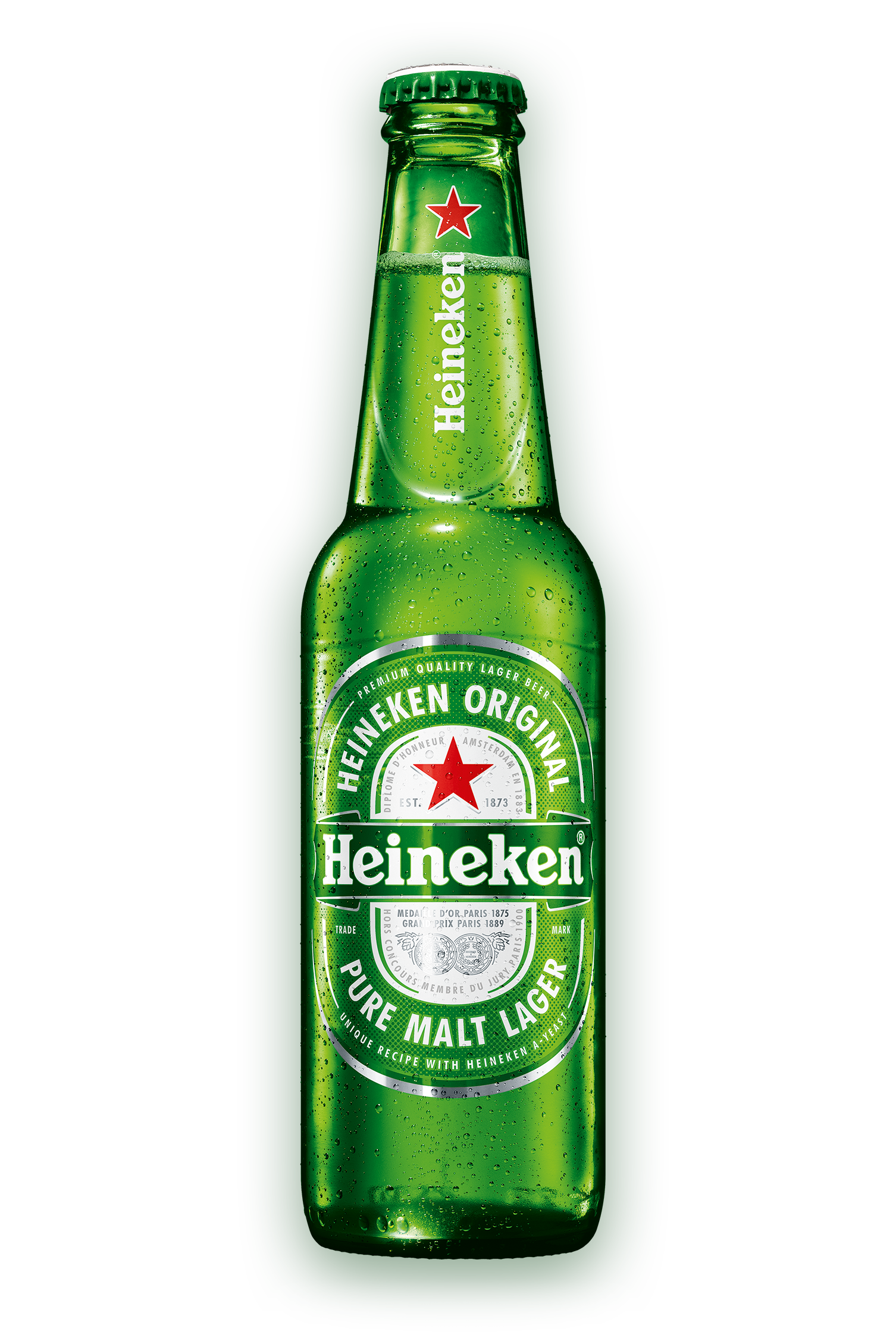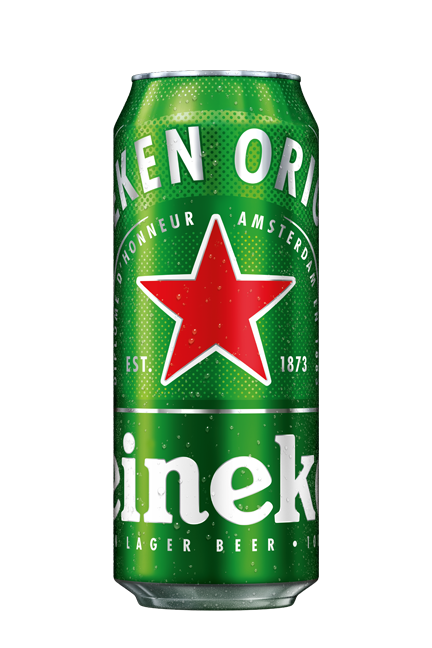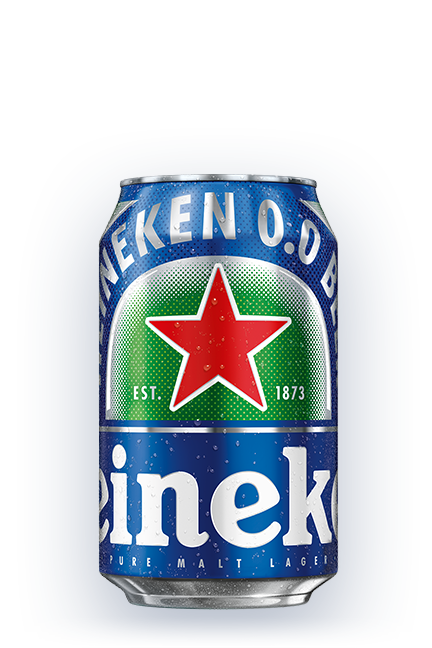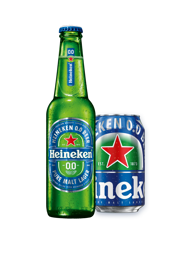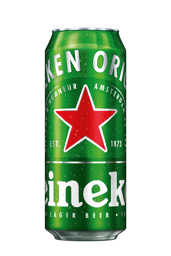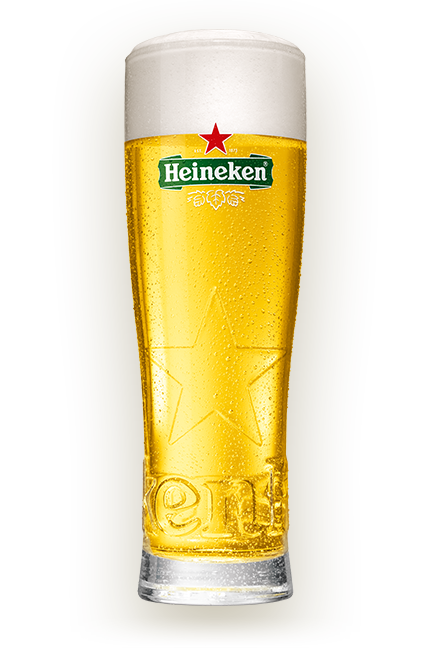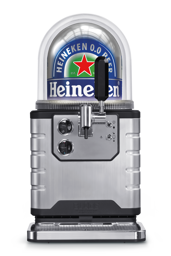Nutritional values
PER 100 ML
| ENERGY | 152kJ / 36 kcal |
| FAT | 0g |
| OF WHICH SATURATED | 0 g |
| CARBOHYDRATES | 2.8 g |
| OF WHICH SUGARS | 0 g |
| PROTEIN | 0.4 g |
| SALT | <0.01 g |
Brewed to be the best since 1873. Brewed to be the best since 1873.
For over 150 years, a ceaseless commitment to purity and quality have made Heineken the most iconic beer brand in the world. When you see the red-star on the green bottle, you know every ice-cold, crisp sip will deliver that richly satisfying flavor with subtle fruity notes. A tradition of taste that his lived on for over a century and a half thanks to the simplicity and quality of the ingredients and the meticulous attention to the brewing process.
BREWING
The beauty of brewing
The beauty of brewing is that it’s a natural process, enhanced by craftsmanship to create the perfect beverage. Our Heineken lager contains just three main ingredients: barley, hops and water. When our A-yeast is added, this is when Heineken magically transforms into the brew we all know and love.
About Heineken Original
-
What is the best way to store my Heineken beer?
The best way to store your Heineken beer is in a cool, dry place out of direct light and heat. Of course, if you’re ready to enjoy it straight away, chill it in the fridge until it’s cooled to around 5°C.
-
How long can I store a Heineken beer before drinking?
Beer is a natural product so it has a limited storage life. Our beer will stay fresh for around six months, so check the best before date on your Heineken beer to make sure you’re enjoying fresh, quality beer.
-
What is the alcohol volume in Heineken beer?
The alcohol volume of Heineken pilsner is 5%.
-
Does Heineken contain gluten?
Beer contains gluten, which comes from the grain used to brew it. Only a fraction of the gluten in the grain gets into the beer – the exact amount depends on the kind of grain used. Brewing beer with barley leaves only traces of gluten in the beer, while wheat contributes considerably more. The brewing process can also affect gluten content. Generally speaking, the clearer and blonder the beer is, the less gluten it contains. Some people are allergic to gluten and have to follow a diet that minimises or excludes their gluten intake. Whether beer can be part of such a diet or not depends on the extent of the allergy and the type of beer consumed. In many cases, lager beers pose no problem for people who have a gluten allergy. However, it is up to individuals to assess their own sensitivity.
-
Does Heineken contain any GMO?
No. Heineken has a policy of not using any GMO raw materials.
-
Does Heineken use any additives in its beer brewing process
No. Heineken is brewed using a natural brewing process with no additives. It contains water, barley malt, hops, and the unique Heineken A-yeast for fermentation in the brewing process.

